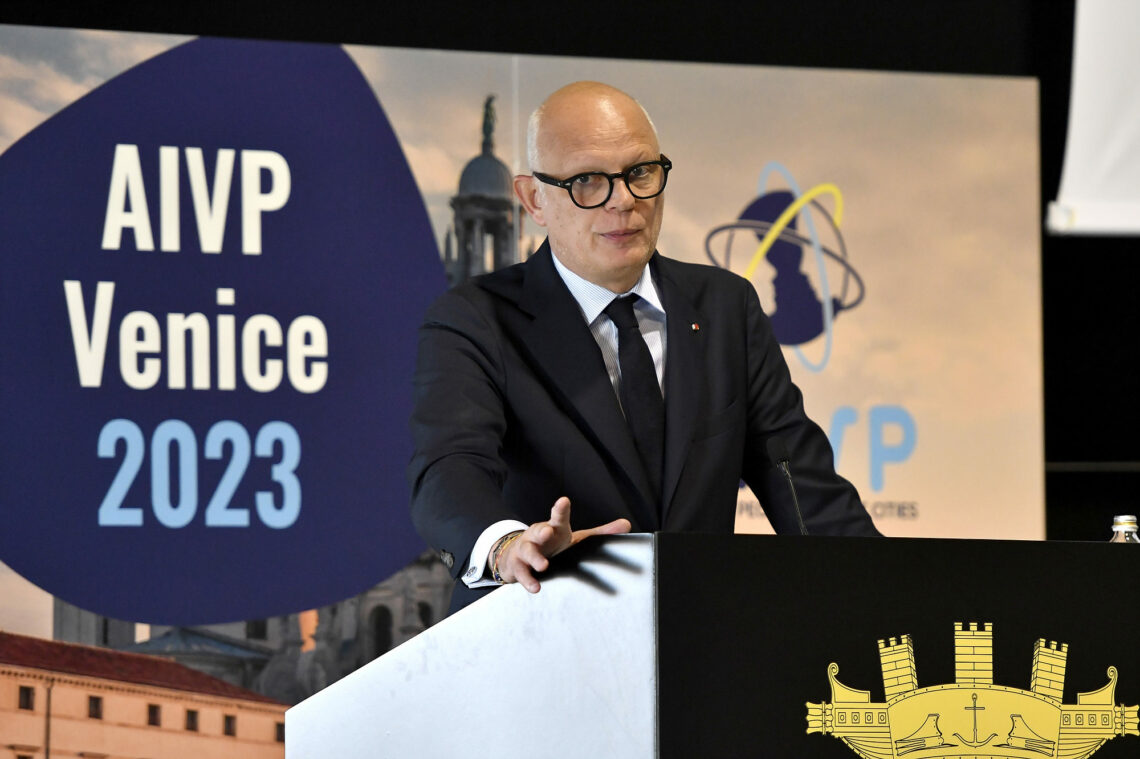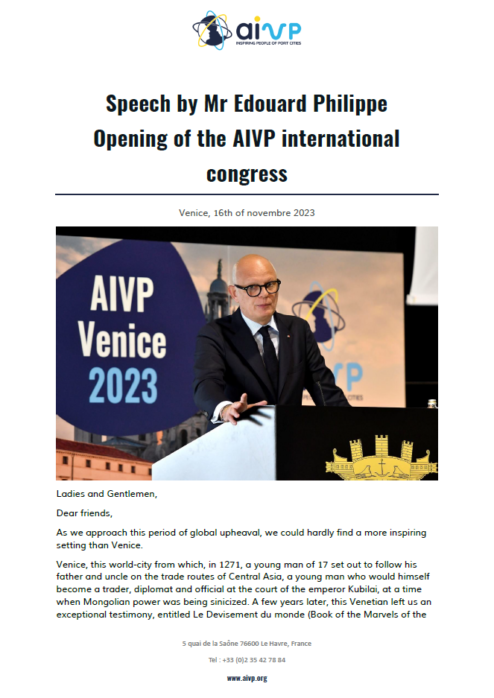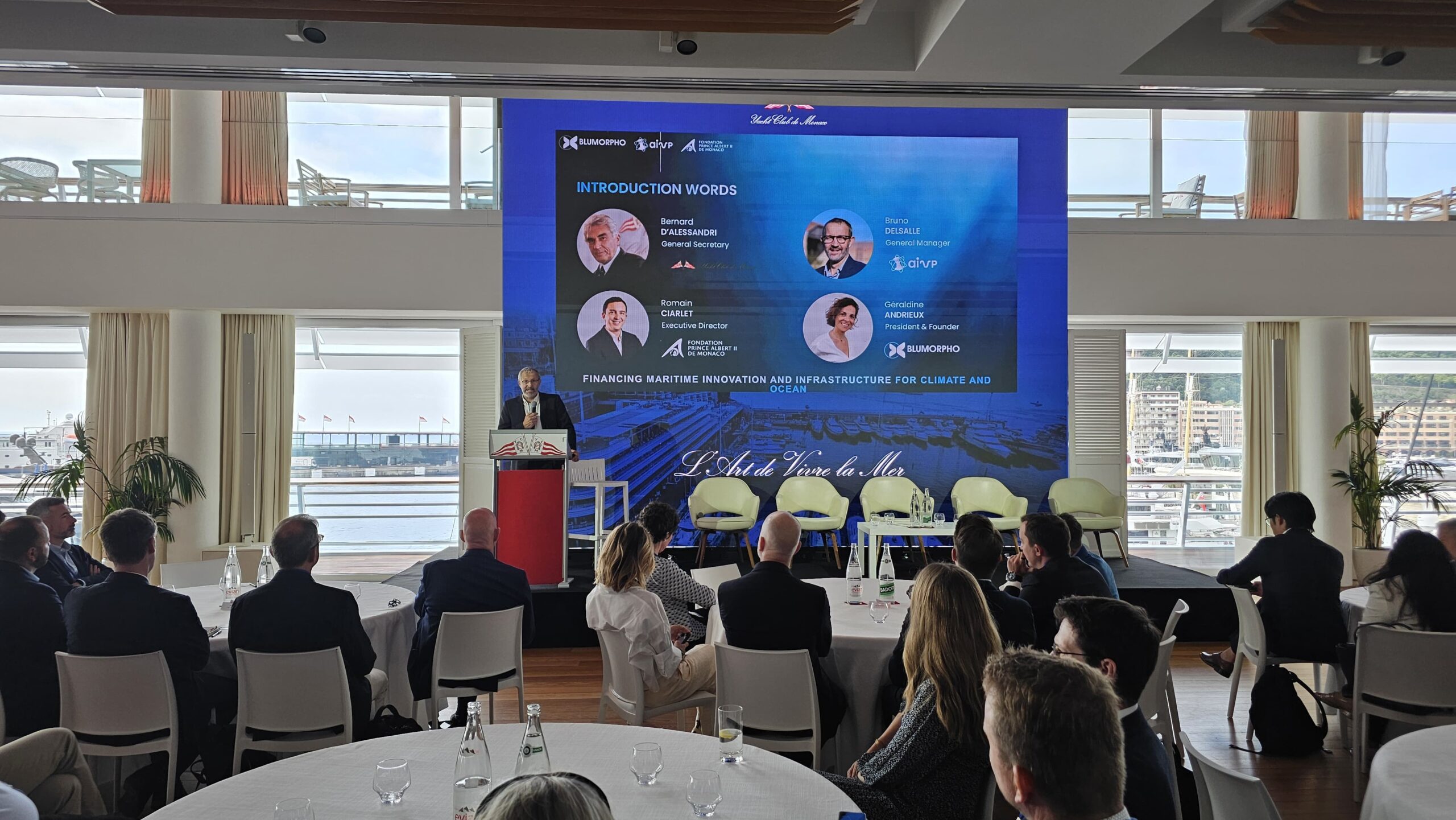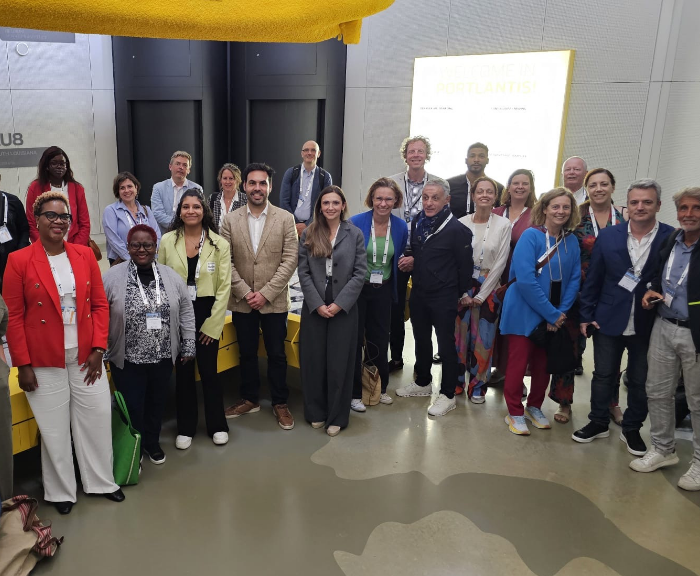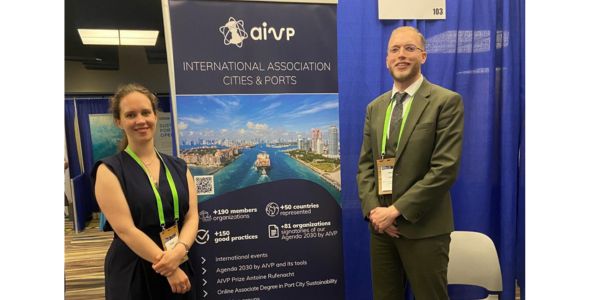Read here an excerpt of the speech of the President of AIVP. The document can be downloaded at the end of this article.
Ladies and Gentlemen,
Dear friends,
During this period of global upheaval, we could hardly find a more inspiring setting than Venice.
Venice, this world-city from which, in 1271, a young man of 17 set out to follow his father and uncle on the trade routes of Central Asia, a young man who would himself become a trader, diplomat, and official at the court of the emperor Kubilai, at a time when Mongolian power was being sinicized. A few years later, this Venetian left us an exceptional testimony, entitled “Book of the Marvels of the World”, on this moment of readjustment of world knowledge that was the 13th century. This talented Venetian is Marco Polo.
And if he were to recount his travels to young Venetians today, the parallels with our own time would be striking. The 13th century ushered in a climatic cooling that lasted 600 years – the so-called “Little Ice Age” – while we are now witnessing a period of global warming that we are actively working to ensure does not last six centuries. The 13th century saw the first impetus of globalization, while we are experiencing the jolts of a globalization that some would like to believe is coming to an end. The 13th century was dubbed the “Mongol century” because the expansion of the Mongol empire – with the famous Genghis Khan and his terrible warriors from the east – profoundly upset the tectonics of geopolitical plates: the fall of Baghdad, the beginning of the liquidation of the Byzantine empire, the rise of military powers such as the Mamelukes in Egypt, who tried to resist the Mongol wave, the strengthening of Islamic powers in northern India and the Indian Ocean…
One of France’s greatest historians, Patrick Boucheron, evokes a reconfiguration of the ancient world’s entire spatial system: “From the China Sea to the Mediterranean, vast interconnected horizons are now articulated, slinging the whole of Eurasia in a great corridor bringing the world’s oldest civilizations into contact”, he stated during a lecture he devoted to Marco Polo (October 8, 2016, at the rendez-vous de l’Histoire de Blois).
In the 13th century, like today, the interweaving of climatic, geopolitical, economic, and maritime phenomena appears with acute intensity. In the 13th century, climatic cooling helped explain the violence of the Mongol conquests. Today, global warming and the new perils coming from the east are having a direct and massive impact on our economies, on port traffic, and therefore on our port cities. So, short of rereading Marco Polo’s “Book of the Marvels of the World”, I’m delighted that we’ve come together to reflect on this readjustment of world knowledge and balance, which directly concerns our port cities.
I would like to extend my warmest thanks to our partner and member, the North Adriatic Sea Port Authority, which has worked alongside us to organize this event. I’d also like to thank the City of Venice and the Navy for welcoming us to the heart of this historic arsenal, and I’d like to thank all of you for coming to help us move forward together.
Download the full speech below:

